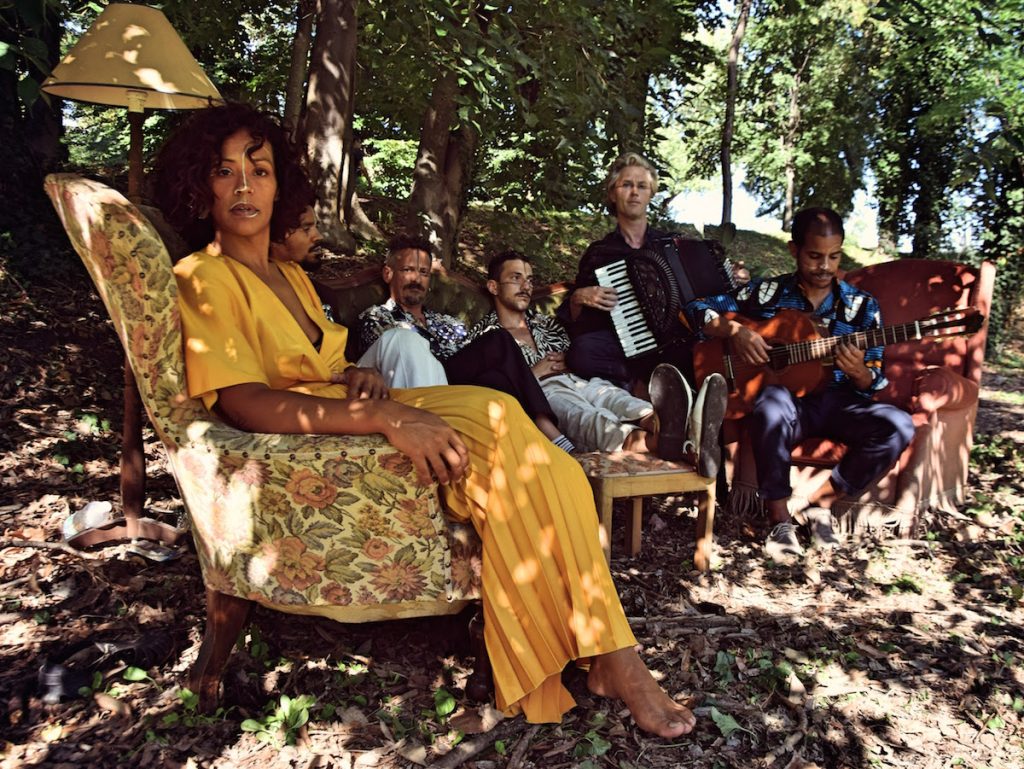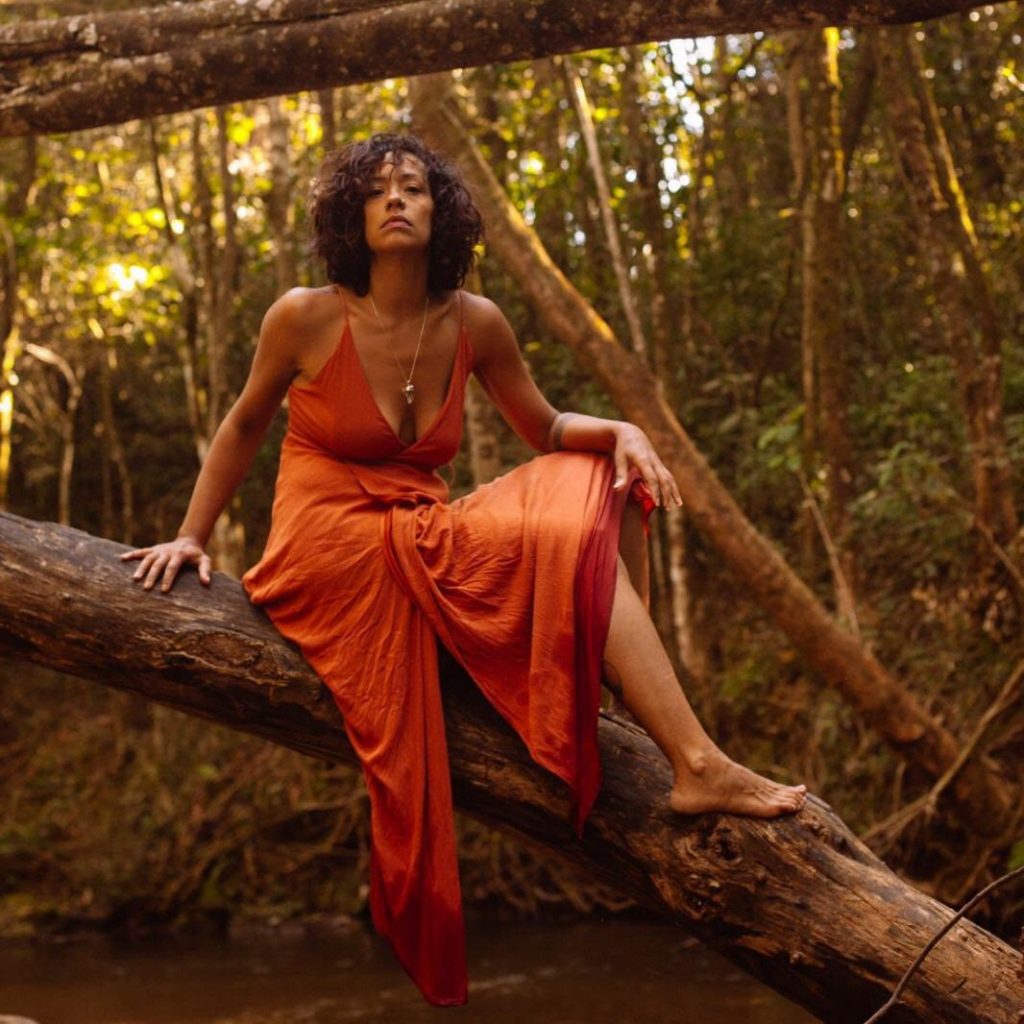Transatlantic Afro Brazil debut album from Ayom out now

Ayom’s self titled debut album is a swinging collection of tracks pointing at, and borrowing from, the folk music of Brazil, Angola and Cape Verde. Blending century old traditions with the black and rhythmical language of lusophone cultures, Ayom defy the purists and provide a hot-stepping and spiritual voyage across the Atlantic.
Whilst some people believe that when we decide or are forced to leave our country for another land, we are also leaving our culture behind, Ayom believe quite the opposite. Formed in Barcelona in 2018, Ayom is made up of 6 members from Angola, Brazil, Greece and Italy with Brazilian singer and percussionist Jabu Morales centre stage. Their name refers to the “Lord of Music” and the pulsing energy that exists in the tambor and drums from the Orixás, the gods worshipped in the Brazilian Candomblé faith. The lusophone connection is given a unique Mediterranean update with the addition of the accordion (Alberto Becucci) adding to the borderless nature of the group’s philosophy and make-up.

With a rainbow of influences flooding through Ayom’s raw and polyrhythmic foundations, it’s perhaps the charm of Brazilian percussionist and singer Jackson do Pandeiro, the swing of Brazilian singer Dona Onete and the poetry of Cesaria Evora and Bonga that the groups sound can be attributed to, and within those influences is an all-pervading connection to Afro Brazilian or Afro Portuguese cultures.
Specifically the music of funaná, carimbó, cumbia, baião, semba and even the music of the French Antilles – debut single Ayom Manifesto runs a biguine rhythm and is half sung in French Creole and Portuguese.

Ayom has given Jabu Morales the opportunity to speak a global version of Portuguese that she couldn’t previously communicate. Across the album you can also hear Spanish, Yoruba and Kimbundu alongside French Creole. She sings in her mother tongue, Brazilian Portuguese, on the second single Cachaça and Macarrão referring to Brazilian rum and Italian spaghetti, and is the story of the passion between a Brazilian and an Italian in the group. Featuring the tuba and the flute, it’s a baião, that plays with the maracatu rhythm. It’s Dixieland jazz under the spell of North Eastern Brazil, a party with Jackson Pandeiro, Hermeto Pascoal and two of the greatest Louis in the business: Luis Gonzago and Louis Armstrong leading the festivities. Like all the tracks, it features Alberto Becucci’s accordion, a core element of the Ayom sound, and particularly interesting as it was an instrument brought over by the European colonisers and regarded as a key cultural influence and product from the occupations.
In the album opener Exú, Timoteo’s Afro Brazilian drum, the zabumba, drives the trip like a religious ceremony and Jabu’s repetitive vocals represent the chanting of Yoruba culture and the orixás. Cravo é Menta’s swing echoes the Northern Brazilian carimbo style with similarities to South American cumbia. Me Deixe Ser is a deep and reflective coladeira inspired tune from Cape Verde whilst tempos and swingometer max-out on Maré e o Luar, a derivative of the Angolan semba.

Jabu Morales emigrated from her home in Minas Gerais, Brazil to Barcelona in 2011 and now juggles her music career with being a mother, teaching women percussion and her on-going study of Candomblé and Afro Brazilian rhythms. It was an unexpected connection between Alberto and Jabu at a concert in Barcelona mid 2018 that instigated the new formation of the group. Alberto and Timoteo Grigani, Ayom cofounder and percussionist, recognised Jabu’s incredible talent, invited her on-board the ship and Ayom was born. Fast-forward to 2019 and an intense, 2 week, recording session in a country house at the home of a Portuguese wine producer in south Lisbon and the manifesto was brought home.
![]()




